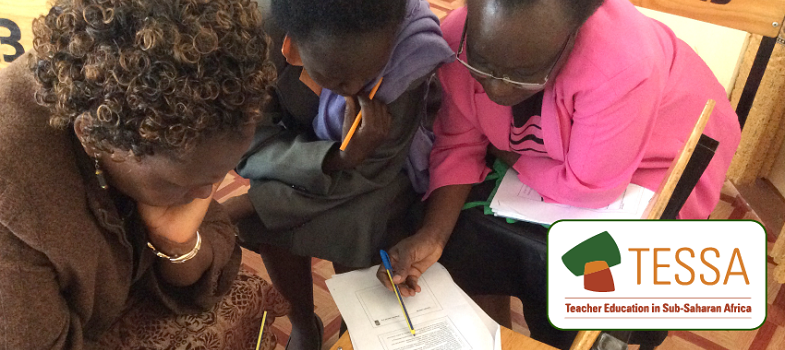1. Gathering oral histories
Teaching history does not only involve facts about historical events, but also the development of pupils’ historical skills. As a teacher, you need give your pupils the opportunity to develop and practise these skills. The kinds of events you explore with your pupils will depend on their ages. With younger children, you will also take more of a lead in helping them find out and understand what happened.
In this part, pupils will conduct oral interviews with an older family member or another member of the community. The aim of the interview is to find out how different their own lifestyles and interests are, compared with those of people in the past. By showing pupils how to conduct an oral interview, you can help develop important skills – being able to see the value of oral history and being able to listen. (Read Resource 1: Oral history now to find out more about this valuable resource.)
Case Study 1 shows how one teacher introduced her pupils to the idea of using oral history to find out about the past. Read this before trying Activity 1 with your class.
Case Study 1: Family oral histories
Every person has a history. Mrs Eunice Shikongo, a Grade 5 teacher at SheetheniSchool on the outskirts of Windhoek in Namibia, wants her pupils to explore their own family histories by interviewing one family member.
First, she discusses what oral evidence is, by encouraging pupils to share things they have learned from their grandparents. She asks them: ‘Has what you have learned been written down?’ Most agree that things learned in this way are not written, but passed on by word of mouth. Mrs Shikongo then explains that, by conducting an interview, pupils will collect oral evidence about what the past was like and will find out what a valuable source of evidence this can be.
She helps them compile a list of interesting questions to use to interview their family members (see Resource 2: Possible interview questions). The pupils then add their own questions to the list before carrying out these interviews at home.
The next day, they share their findings with the rest of their class. Mrs Shikongo summarises their findings on the board under the heading ‘Then’. Next, she asks them to answer the same questions about their own lives, and summarises this information under the heading ‘Now’. She asks them to think about how their lives are different from the lives of their family members in the past. She then asks the pupils, in pairs, to compare ‘Then’ and ‘Now’. Younger pupils write two/three sentences using words from the board. Older pupils write a short paragraph.
Activity 1: Oral interviews about childhood
- First organise your pupils into pairs. Then tell them to think of some questions they can ask an older person about his/her childhood. Give the pupils time to think up their questions and tell them how long they have to do this task – maybe two or three days. If you have younger pupils, you could work together to make up three or four questions they could remember and ask at home.
- When they have asked the questions at home, ask the pupils to share their information with their partners.
- Then ask each pair of pupils to join with another pair and share what they have found out.
- Now ask each group of four to complete a table to show how life has changed.
| Older person | Me |
I would travel to market by donkey
| I travel to market by bus |
| |
|
- Discuss with the whole class how life has changed since their parents and/or grandparents or other older people were children. Pose questions that encourage them to reflect on why such changes have taken place. (Key Resource: Using questioning to promote thinking [Tip: hold Ctrl and click a link to open it in a new tab. (Hide tip)] can help you think of the kinds of questions you need to ask to stimulate pupils. You could note some of these down before the lesson to remind you at this stage.)
- Make a list of the key changes on the board.
Section 2 : Investigating how we used to live



